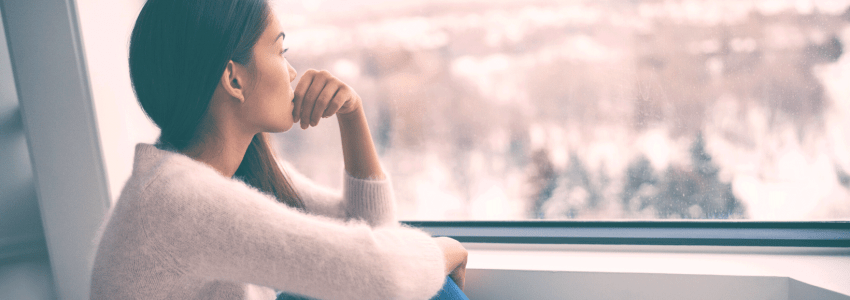The past two years have been extremely difficult for everyone — especially healthcare workers. Spring and Summer 2021 were a blessing to many of us because after a tough day of work, we had the option to go enjoy some vitamin D, and that certainly can help with my mental health. As the weather starts to cool down, my mind instantly becomes weary at the thought of winter. There are usually a lot of things to look forward to in the winter here in the Midwest where I live. The first snowfall, time with family during the holidays, Christmas music/movies, and much more.
Speaking of winter, something that doesn’t get talked about enough is Seasonal Affective Disorder (SAD). According to helpguide.org, SAD is a form of depression that occurs at the same time each year, usually in winter. Otherwise known as seasonal depression, SAD can affect your mood, sleep, appetite, and energy levels, taking a toll on all aspects of your life — from your relationships and social life to work, school, and your sense of self-worth. You may feel like a completely different person than you are in the summer: hopeless, sad, tense, or stressed, with no interest in friends or activities you normally love. No matter where you live though (or how dark and cold the winters), the good news is that SAD is treatable. Here are some tips to help cope with SAD as we head into winter.
Get as much sunlight as possible.
Sunlight, even in the small doses that winter allows, can help boost serotonin levels and improve your mood. Open your blinds and let natural light into your home if the weather’s too chilly. Some people find that painting walls in lighter colors or using daylight simulation bulbs helps to combat winter SAD.
Move your body.
Try to get as much exercise as possible throughout your day. Whether it’s going on a walk, doing a short circuit or walk up and down your stairs, exercise can treat mild to moderate depression as effectively as antidepressant medication.
Stay in touch with family and friends.
Community is extremely important, especially when it comes to maintaining your mental health. Whether it’s a quick call, joining a support group, writing a letter, or volunteering, having interaction with people and building relationships can help immensely.
Seek help.
Self-care is important for everyone, but if you’re still feeling lonely, agitated, irritable, or any of the many other signs of depression, or if you’ve suffered a trauma, it’s probably a good idea to seek help. A good first step is to find out if your travel healthcare company offers you an employee assistance program (EAP). Current Aureus travelers get eight free, totally confidential counseling sessions per life event as part of your benefits with us! Just contact your recruiter for more info or to get started. If your company doesn’t have an EAP, Psychology Today is a good resource for finding a mental health professional. It lets you filter by your insurance, concerns, treatment styles, and preferences. Of course, in an emergency, call 911. Additionally, the National Suicide Hotline is 800-273-TALK.
Seasonal Affective Disorder is a serious matter and preparing for it can be the best way to help cope with it. Our team is here to help you however we can, so contact us whenever you need help. And remember, you are so strong and you are not alone!

